The Washington Fish and Wildlife Commission is comprised of nine citizen members, each appointed by the governor.
Serving on the Commission
Commission appointees are subject to confirmation by the state Senate. Members are official upon appointment and serve as voting members while awaiting Senate confirmation.
The Commission must include three members from west of the Cascade Mountains, three members from east of the Cascade Mountains and three “at-large” members who may reside anywhere in the state. No two Commission members may reside in the same county (RCW 77.04.030).
Each commissioner is appointed to serve a six-year term. If a member resigns before the term expires, the governor appoints a replacement within 60 days to complete the remainder of the term. Incumbent commissioners may be reappointed by the governor to serve additional terms.
Commission members typically work two or three days a month attending public meetings, most of which take place in Olympia, and participating in telephone conference calls.
In addition to regular Commission meetings, each member serves on one or more Commission subcommittees, focusing in-depth on individual fish and wildlife issues. These committees, each comprised of four Commission members working with Washington Department of Fish and Wildlife staff, generally meet in conjunction with regular Commission meeting dates or via telephone conference call.
Commissioners are paid $100 per workday, and are reimbursed for travel expenses (meals, mileage, and lodging) in the same manner as state employees on work assignment. The Commission elects a new chair and vice chair every other year.
If you are interested in serving on the Commission, visit the Governor’s Office website for more information and access to the online application tool or contact the governor’s Boards and Commissions Office by telephone at 360-902-4110.
Commission Chair
Barbara Baker
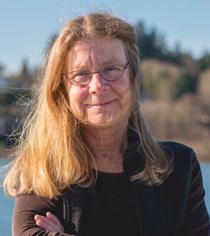
(Western Washington, Thurston County)
Occupation: Attorney/Retired Administrator
Current Term: March 1, 2023 - Dec. 31, 2028
Barbara Baker was appointed to the Commission in January 2017 and was elected as vice chair January 2019 and Chair in March 2022. She is an attorney who retired from a long career in the state legislature to devote time and energy to fulfill the requirements of this important appointment. Barbara’s most recent job was as an administrator, serving as Chief Clerk of the House of Representatives for 10 years. Prior to that, she was Policy Director to the House Democrats and also a researcher on policy and state budget issues. Her professional career began working at McKinley (now Denali) National Park in Alaska and also on the Alyeska pipeline. She comes from a ranching family in Texas and for many years raised Haflinger horses and Romney sheep as well as two daughters, now grown with children of their own.
Chair Baker is an avid outdoorsperson, spending all of her free time hiking, camping, biking, and especially kayaking in Alaska, B.C., and Washington. She loves music and lives on a houseboat on Puget Sound.
Commission Members
James "Jim" R. Anderson
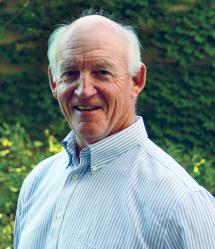
(At-large position, Pierce County)
Occupation: Retired Administrator
Current Term: April 5, 2025 - Dec. 31, 2030
James "Jim" R. Anderson was appointed to the Commission in July of 2019. Jim is a life-long resident of the state, and lives near Buckley in rural Pierce County, very close to land his grandparents bought in 1912 and that is still in the family today. He graduated from Washington State University in 1974 with a Bachelors of Science in Environmental Science and Masters of Science in Environmental Science (Rural and Regional Planning option) in 1978. He worked 35 years in professional natural resource management. He was the Executive Director of the Northwest Indian Fisheries Commission from 1985 to 2005, before retiring in 2010.
Commissioner Anderson has been and continues to be an active fisher, hunter and outdoor recreationalist. He started fishing when he was 4, and hunted since he was 10, and has had fishing and hunting licenses every year since. He is an avid backpacker, having hiked all of the 508 miles of the Pacific Crest Trail in Washington. A former mountaineer, he has climbed all the major volcanoes in the state numerous times, as well as many other mountains.
He has served on numerous boards and committees at local, state and federal levels. He has been Secretary of the Board of the Puget Sound Restoration Fund and the Washington Water Trust for many years. He was a member of the US Fish and Wildlife Sport Fishing and Boating Partnership Council. He served for over two decades on the Enumclaw Regional /St Elizabeth Hospital Board. He has worked with many federal, state and local agencies and understands our governing laws, including treaty rights. He is well connected to tribal communities and values the work they do and the roles they have played in our state. He was a key participant and leader at the Timber-Fish-Wildlife Process, the Chelan Water Agreement, Shared Salmon Strategy, Hatchery Reform Coordinating Committee, and many other efforts.
He and his wife, Dianne Meserve have two children, Katie and Erik.
Victor Garcia
(Western Washington position, Skagit County)
Occupation: Retired, math and science teacher
Current Term: April 5, 2025 - Dec. 31, 2030.
Victor Garcia grew up outdoors. His favorite places were the trails, beaches, rivers, and lakes of the Cascades and Olympics. An avid birder before he could read, he has traveled to all continents except Antarctica to experience wildlife firsthand. He earned a Bachelor of Science in Zoology from the University of Washington, learning how ecosystems function from legends such as Robert Paine. After working for National Marine Fisheries Service, he worked as a commercial fisherman in the Bering Sea region. Victor earned a master's in science education at Vanderbilt University. He taught in Nashville, returning to Washington to teach math and science. His flagship course was AP Environmental Science; where the topics of habitat, clean air, water, and conservation were emphasized. An advocate for community science, he worked with his students on monitoring and restoration projects.
After retiring, he can be found anywhere from Washington to Alaska, in a boat, on a bike, or trail, enjoying nature with his family, friends, and dogs.
John Lehmkuhl, Ph.D.
(Eastern Washington position, Chelan County)
Occupation: Retired, research wildlife biologist with the U.S. Forest Service
Current Term: Jan. 24, 2022 - Dec. 31, 2026
John Lehmkuhl is a life-long hunter and fisherman and has lived in Washington since 1983. He has deep roots in Washington’s fish and wildlife and is committed to its sound scientific management. Dr. Lehmkuhl has been a wildlife biologist for 48 years, has multiple degrees in wildlife biology (BS, MS, PhD), and was a wildlife research scientist for 30 years, mostly with the US Forest Service in Wenatchee. He authored or coauthored over 100 scientific research or management publications on subjects ranging from birds, to flying squirrels, to elk, and to landscape management. He is a strong believer in collaborative efforts and has led or worked on many committees and teams of professionals and the public with divergent interests.
He is committed to fostering both consumptive uses (e.g., hunting & fishing) and non-consumptive biodiversity aspects of wildlife management. He believes that through sound fish and wildlife management we can contribute greatly to a high quality of life for all Washington citizens. He resides with his wife Katherine, two dogs, and three horses in Wenatchee. In his spare time, he enjoys leather working, horse riding, hunting, fishing, and just plain having fun outdoors.
Molly Linville
Occupation: Cattle Rancher/Farmer
Current Term: April. 5, 2025 - Dec. 31, 2030

Molly Linville was appointed to the Commission in July of 2019 and served as Vice Chair from December 2021 to December 2023. She is from a fifth-generation wheat and barley farm near Reardan, Washington in Lincoln County. She attended the University of Montana where she completed a Bachelor of Science degree in Wildlife Biology. In 2000, she began working for the U.S. Fish and Wildlife Service as a wildlife biologist and a wildlife refuge manager. She was attending Washington State University to get a Master of Science degree in Environmental Science, when her father-in-law unexpectedly passed away, leaving his 100 year-old, 6,000-acre cattle ranch, near Wenatchee, Washington to her and her husband, David. Molly left her master’s program to attend to the ranch and has been running the operation since 2011.
Molly has worked with state legislators on issues such as; fire suppression in communities not served by a fire district, fire impacts on rangeland, environmental laws that have become too cumbersome for small family farms, the mental health crisis in farming communities, and predator/livestock conflicts.
She previously served as the Planning Commissioner for Douglas County, and sat on the school board for the nearby two-room school that serves 25 students in Palisades and as a member of the State's Wolf Advisory Group (WAG).
In 2018, she was awarded the Redd Fund Award from the Society for Range Management for excellence in range management for her work in creating a curriculum on the importance of range land that is taught at fire refreshers across the State of Washington and in parts of Oregon. Her roots run deep in the state and she’s spent a career serving the beautiful landscapes and wildlife populations found here.
Woodrow “Woody” Myers
(At-Large position, Spokane County)
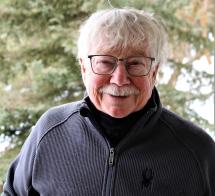
Occupation: Retired wildlife research biologist, Washington Department of Fish and Wildlife
Current Term: March 1, 2023 - Dec. 31, 2028
Woody Myers retired from WDFW in 2017 after 40 years of wildlife research work. His work spans explorations of the impacts of Mt. St Helens ashfall on waterfowl, upland birds, and aquatic resources in the Columbia Basin, studies of mule deer migration in the Methow Valley of Okanogan County, elk calf mortality studies in the Blue Mountains, mule deer nutrition and reproduction across much of eastern Washington, and moose and white-tailed deer research in northeast Washington that helped set the stage for the ongoing Predator-Prey Project. Woody pioneered aerial net-gun capture of ungulates for radio-collaring and helped create the agency’s flight safety training and protocol.
He earned his bachelor’s degree in wildlife biology from the University of Idaho and did graduate work at WSU Spokane. During his career, he was a regular guest lecturer in wildlife classes at Washington State University and Eastern Washington University.
As the son of a career Air Force officer, Woody grew up all over – from Japan to Alaska. His time near the Texas Gulf Coast sparked his life-long interest in fish and wildlife. He’s been hunting and fishing since he was five years old. Today, he enjoys following his pointing dogs after upland game birds; hunting elk, deer, and other big game; watching birds and other wildlife; and all kinds of fishing.
Steve Parker
(Eastern Washington position, Yakima County)
Occupation: Retired, fisheries biologist, Yakama Nation Fisheries
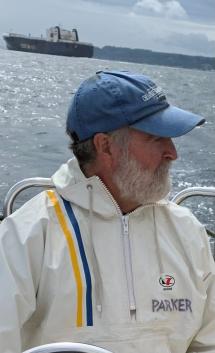
Current Term: March 1, 2023 - Dec. 31, 2028
Born and raised in Seattle, Steve Parker has lived his entire life in Washington state except for military service. His maternal ancestors homesteaded on Shaw Island in the San Juan group before statehood, and his paternal roots in Seattle date to 1919. Following service in the US Air Force, he obtained bachelor's and master's degrees in Fisheries Science from the College of Fisheries at the University of Washington. While in graduate school he became Project Leader for two sockeye salmon research projects in the Alaskan bush country. This experience produced a deep appreciation and respect for true wilderness in which humans are merely another link in the food chain.
During those years of accelerated learning, he authored or co-authored numerous reports and publications on the ecology and population dynamics of Alaskan sockeye salmon. Steve moved with his family in 1986 to central Washington and accepted a position with the Yakama Nation Fisheries Resource Management Program. There he worked closely with the Yakama Tribal Council on matters related to inter-jurisdictional fishery management, hydroelectric dam relicensing, and salmon habitat restoration. His scientific perspectives on fishery ecology have been broadened and enriched by the traditional ecological knowledge of the Yakama people who have lived sustainably for countless generations with the fish and wildlife resources of Washington.
Steve currently serves on the board of the Mid-Columbia Fisheries Enhancement Group and is a Private Interest Advisor to the U.S. Section of the North Pacific Anadromous Fish Commission. He and his wife, Lisa, have raised two children, numerous thoroughbred horses, and abundant vegetable crops on their small acreage outside Yakima. He is an avid sailor when the opportunity presents and she is an accomplished dressage trainer and rider. They enjoy hiking, snowshoeing, and wandering any beach that offers.
Melanie Rowland, J.D.
(At-Large position, Okanogan County)
Occupation: Retired, environmental attorney, National Oceanic and Atmospheric Administration Office of General Counsel
Current Term: Jan. 24, 2022 - Dec. 31, 2026
Melanie J. Rowland has lived in Washington and enjoyed its stunning natural landscapes since the 1970's. She served in the Northwest Regional Office of General Counsel for the National Oceanic and Atmospheric Administration (NOAA), where she advised the National Marine Fisheries Service (NMFS) on matters pertaining to the Endangered Species Act (ESA) and other federal environmental laws. While at NOAA she was a member of the NMFS national working group on the effects of climate change on marine species and co-authored several publications on this topic. Since retiring from NOAA, she has volunteered as a member of the board and legal counsel for the Methow Valley Citizens Council.
Prior to her service with NOAA, Commissioner Rowland was a Visiting Scholar at the University of Washington’s Institute for Environmental Studies and the Law School, where she co-authored the country’s leading wildlife law treatise and taught courses in conservation biology and wildlife law. Previously, she served as Senior Counsel for The Wilderness Society, and as Assistant Dean at the University of Washington and the University of Puget Sound law schools. She obtained her undergraduate degree from Stanford University and her law degree from the University of Pennsylvania Law School.
Commissioner Rowland and her husband live in Twisp. They enjoy hiking, birding, and cross-country skiing in the beautiful Methow Valley. They also enjoy sea kayaking on the coasts of Washington, BC, and Alaska. She is an avid student of wildlife track and sign and is certified by CyberTracker.
Lorna Smith
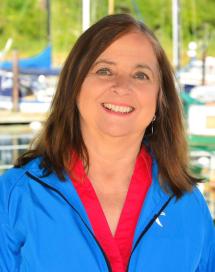
(Western Washington position, Jefferson County)
Occupation: Retired, Executive Director, Western Wildlife Outreach (WWO)
Current Term: Jan. 4, 2021 - Dec. 31, 2026
Lorna Smith was appointed to the Commission in January, 2021. A graduate of Evergreen College, she served as Snohomish County lead environmental supervisor from 1986-2007 specializing in ESA, NEPA, SEPA, the Clean Water Act and other environmental laws. She has served as faculty for several Continuing Legal Education seminars on environmental compliance. Following her time at Snohomish County, she and her biologist husband, Darrell Smith, spent four years in Costa Rica working on habitat projects and establishment of a new national park.
A 5th generation Washingtonian whose family lived in coastal WA and OR before statehood, Smith grew up on the saltwater. She comes from a long line of lighthouse keepers, hunters, fishers and boaters. The Smith’s rural home in Jefferson County overlooks Discovery Bay, Protection Island and the Dungeness Lighthouse where her grandparents were stationed. As one of two coalition leads, Smith received a national conservation award for her work with WDFW, USFWS and Washington’s congressional delegation to establish Protection Island National Wildlife Refuge, home to tens of thousands of nesting seabirds. Smith also received recognition from WDFW for her years of service on the Department’s Non-game and Lands Advisory Committees. She has also served on WDFW ad-hoc advisory committees focused on large carnivores.
Appointed by the Jefferson County Board of County Commissioners, Smith served on the Jefferson County Planning Commission and the Jefferson County Conservation Futures Oversight Committee.
